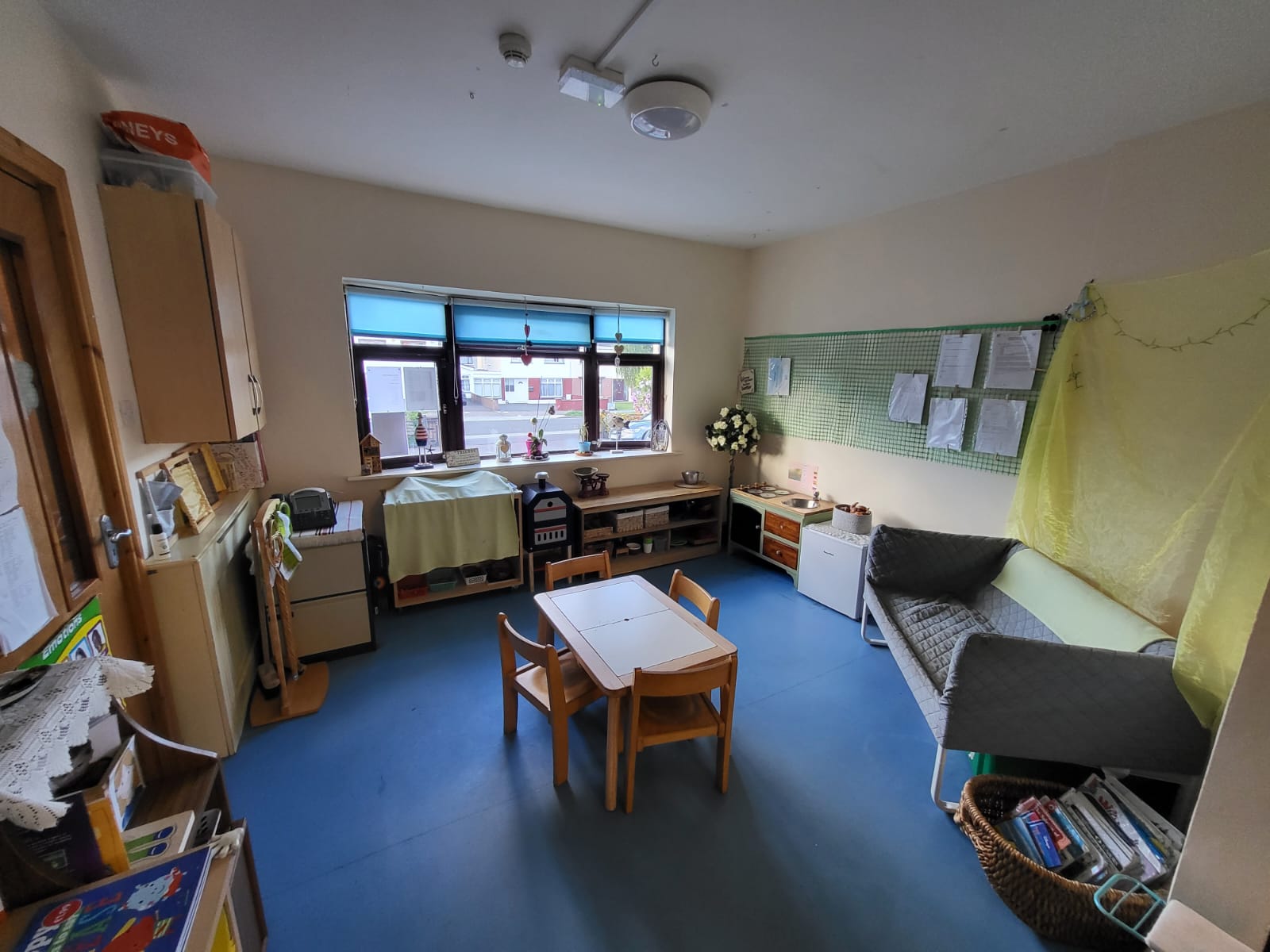Early Education Centre at Daisychain
At Daisychain we acknowledge and recognise that each child’s journey is individual and we respect and facilitate their personal growth and development. We trust that the child’s internal compass will guide them on their path of discovery and learning. We as teachers support and encourage this by creating an environment where we allow this to unfold naturally.
All our room leaders in our ECCE scheme have a FETAC Level 6 Award in Early Childcare & Education and work in conjunction with the guidelines of Aistear & Siolta.
As part of our ECCE curriculum we have a Steiner inspired classroom (Stepping Stones), a Reggio Emilia inspired classroom (Little Scholars) and a Montessori Education classroom (Little Cherubs).
Stepping Stones
The Rudolph Steiner Approach.
Our Stepping Stones room is a Steiner Inspired Class and caters for children aged 2.8 -5 yeras.
“Our highest endeavour must be to develop free human beings who are able of themselves to impart purpose and direction to their lives. The need of imagination, a sense of truth and feeling of responsibility-these three forces are the very nerve of education.”
- Rudolph Steiner. Steiner Waldorf Education. Rudolph Steiner (1861-1925)
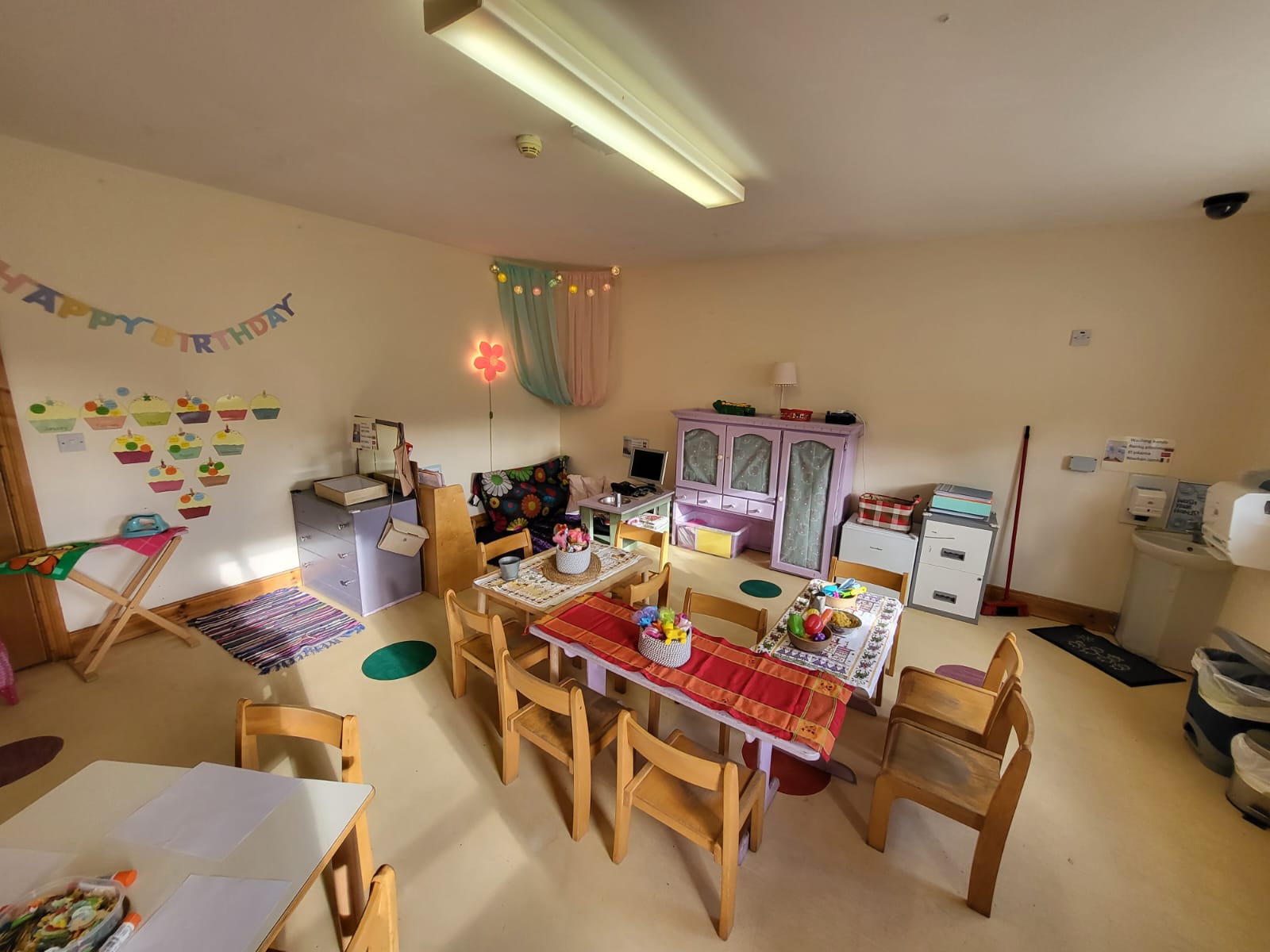
Steiner was born in Austria in 1861. His ideas about teaching young children are known as the Waldorf Education System. The curriculum he designed aims to provide equal experience of the Arts and Sciences. Imaginative play, often with natural materials, is central to the Waldorf scheme. Children are free to choose whether to play together or alone. The teacher has an important task as role model for the children, and encourages a child to think imaginatively through songs, games or activities such as cooking or painting.
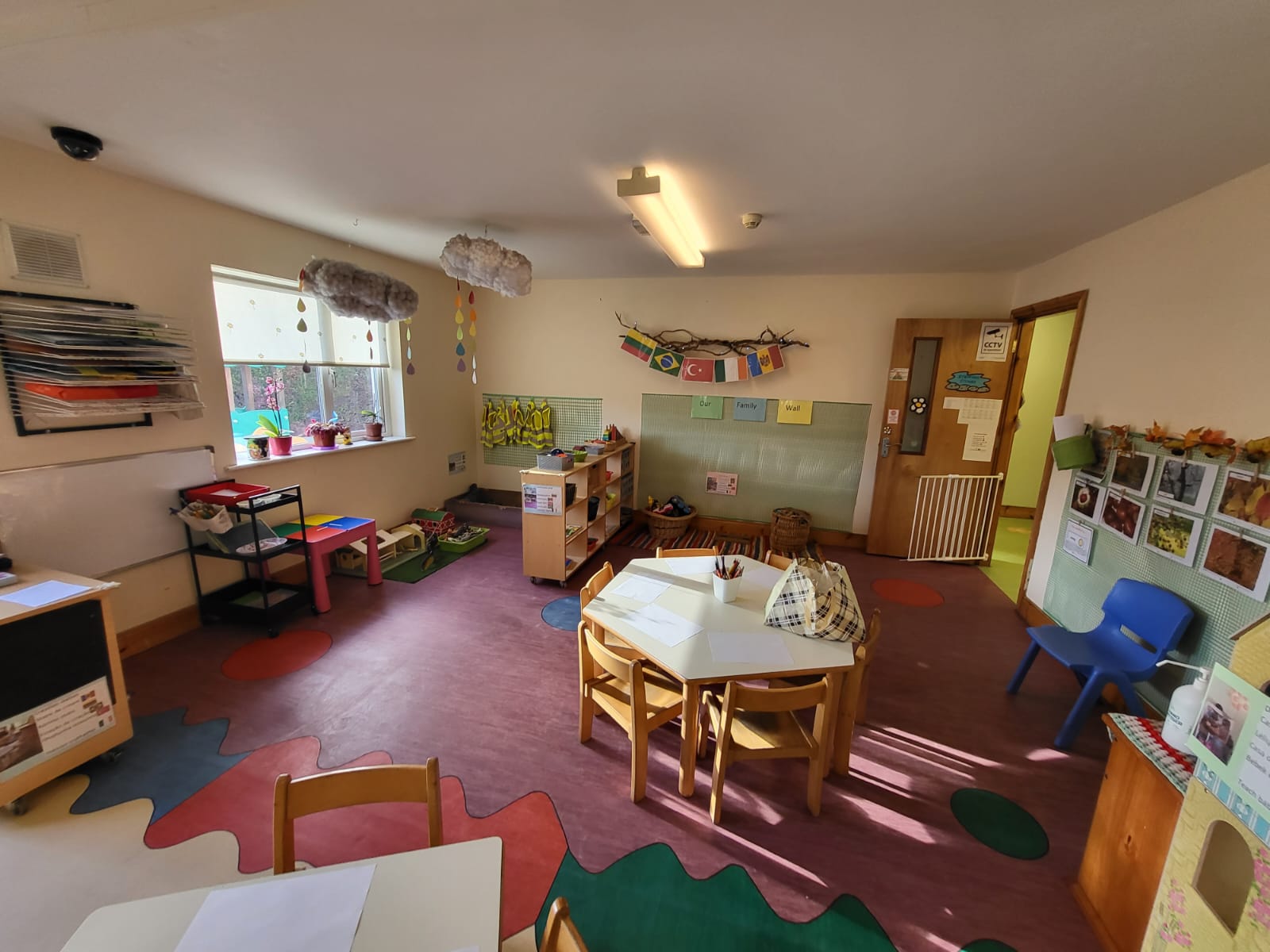
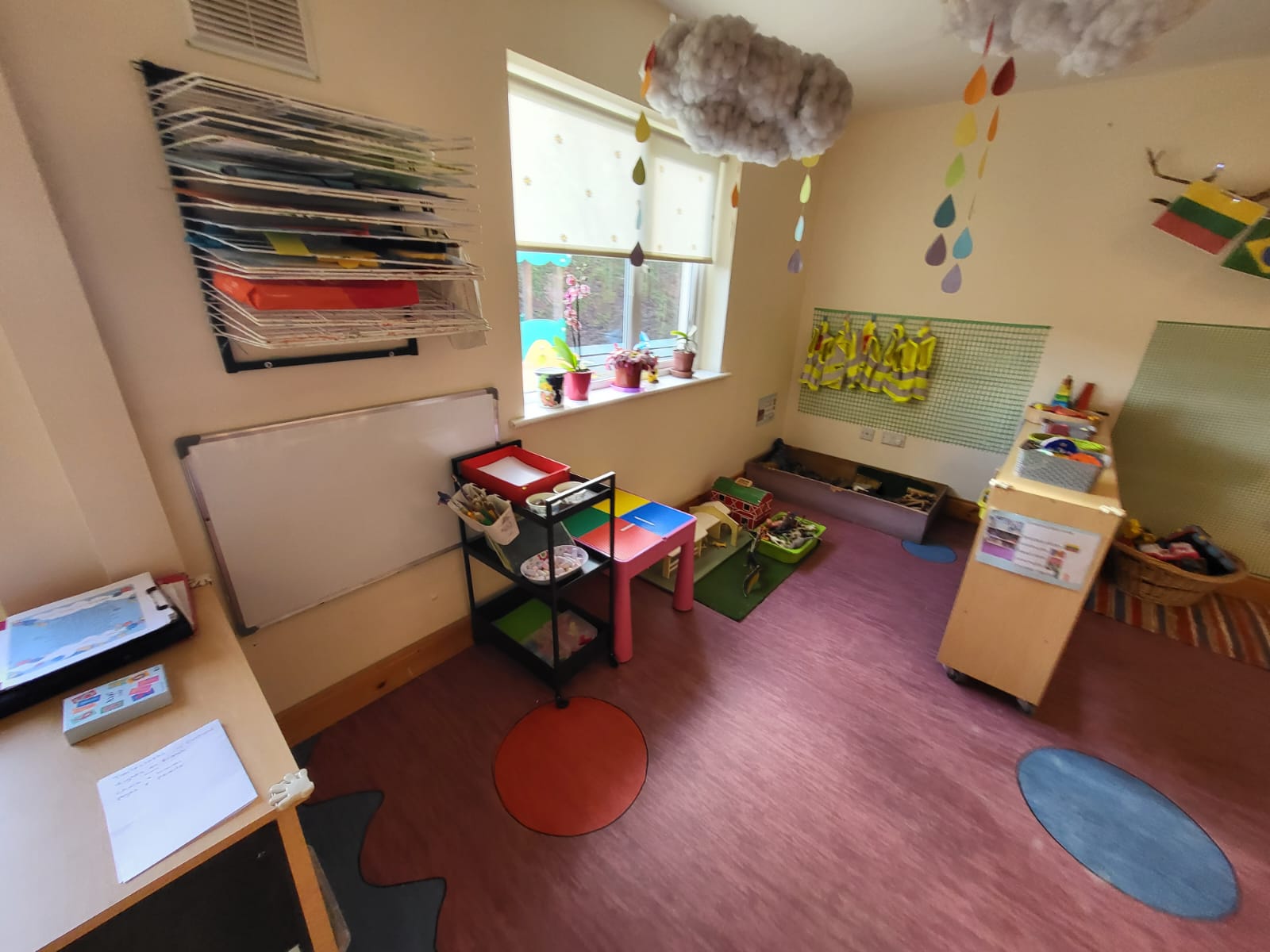
A typical day in the Steiner Inspired class is as follows:
- 9am-915am Settling in
- 915am-1015am Exploration & Play
- 1015am-1045am Snack time
- 1045am-1130am Outdoor exploring
- 1130am-12pm Ring time (Reflection time, songs and stories)
Little Scholars
Reggio Emilia Approach.
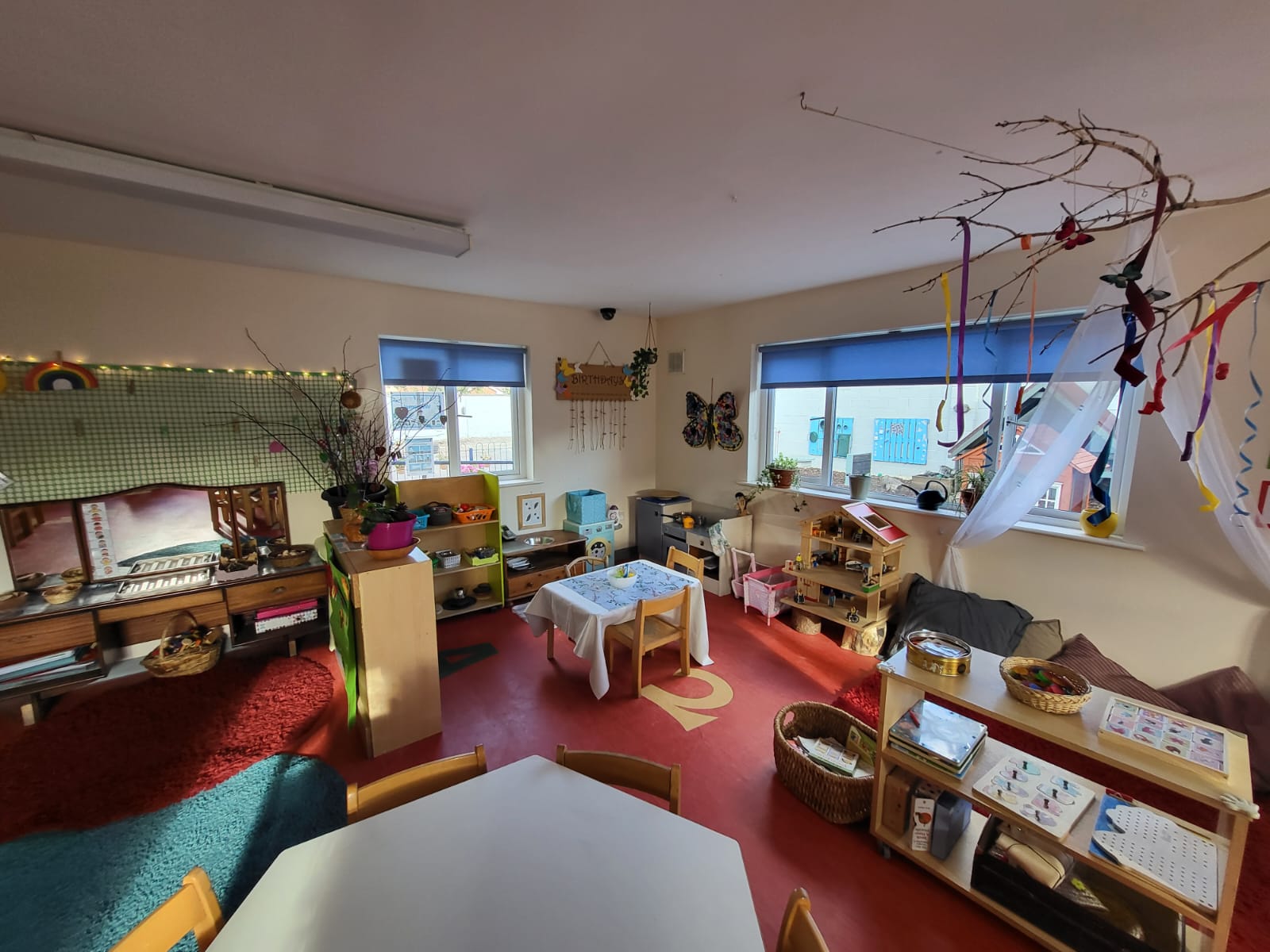 Little Scholars Reggio Emilia Classroom
Little Scholars Reggio Emilia Classroom
“Each child is unique and the protagonist of his or her own growth. Children desire to acquire knowledge, have much capacity for curiosity and amazement, and yearn to create relationships with others and communicate.” - Malaguzzi, Former teacher in Reggio Emilia
Reggio Emelia is a city in northern Italy where a volunteer group of educators, parents and children came together after World War 2 with a shared vision of how to reconstruct society through a new kind of education for young children.
In Reggio Emilia the theory is that children are little researchers. They can and want to communicate with the surrounding world and they express their feelings through words, movement, drawing, painting and music. The children are given this opportunity in a Reggio Emilia environment through hands on experience. The teacher follows the child’s interests and believes in a “Listening Pedagogy”. Topics for study in the class are based on listening and observing the children and their interests. Time is not set by the clock but by the child’s needs and interests. There is sufficient time for each child to express, learn, explore, extend and revisit a given project.
A typical day in the Reggio Emilia Inspired class is as follows:
- 9am-9:15am Settling in
- 9:15am-9:30am Morning meeting
- 9:15am-11am Exploring time
- 11am-11:30am Outside exploring
- 11:30am-12pm Reflection time
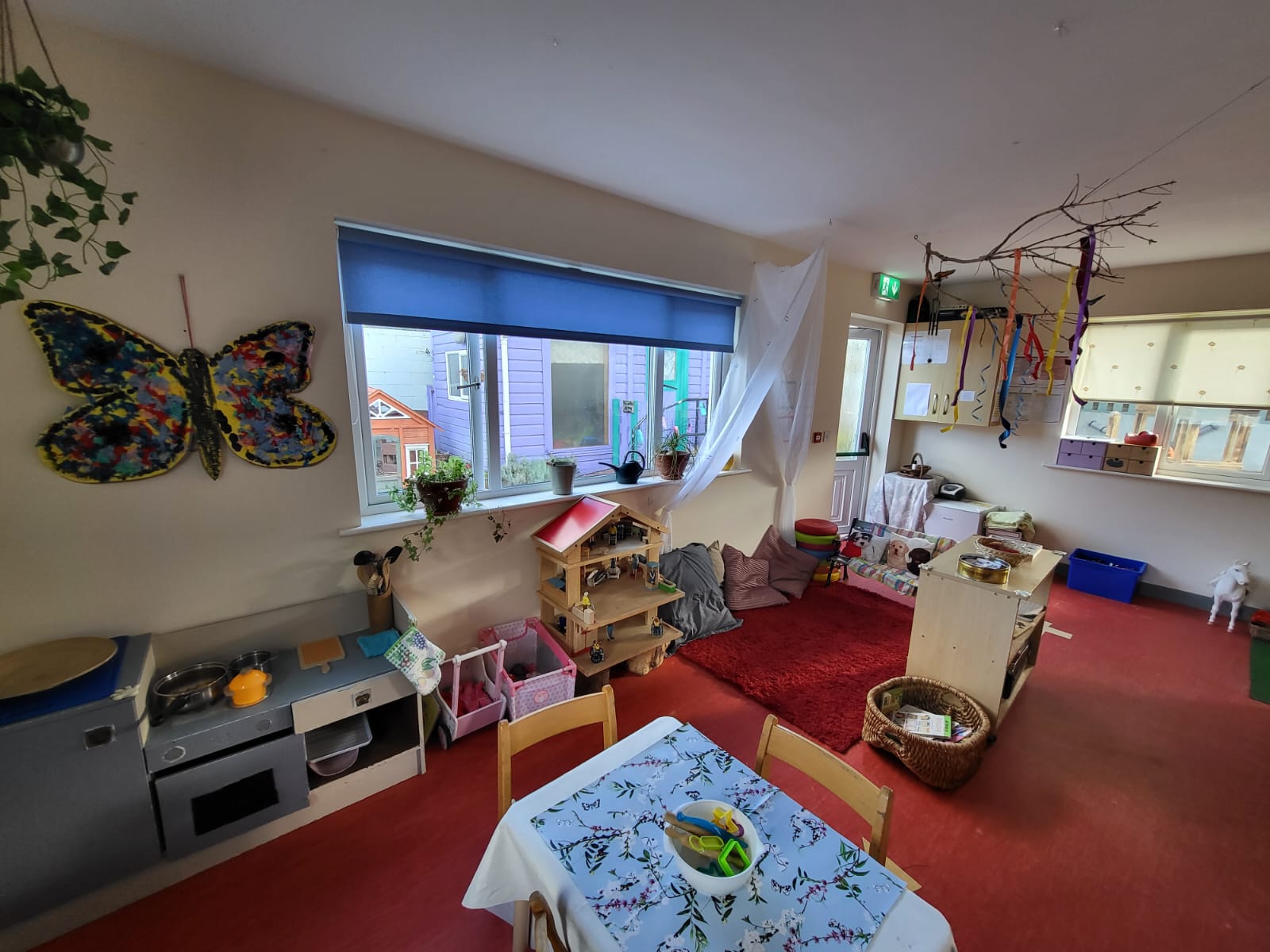
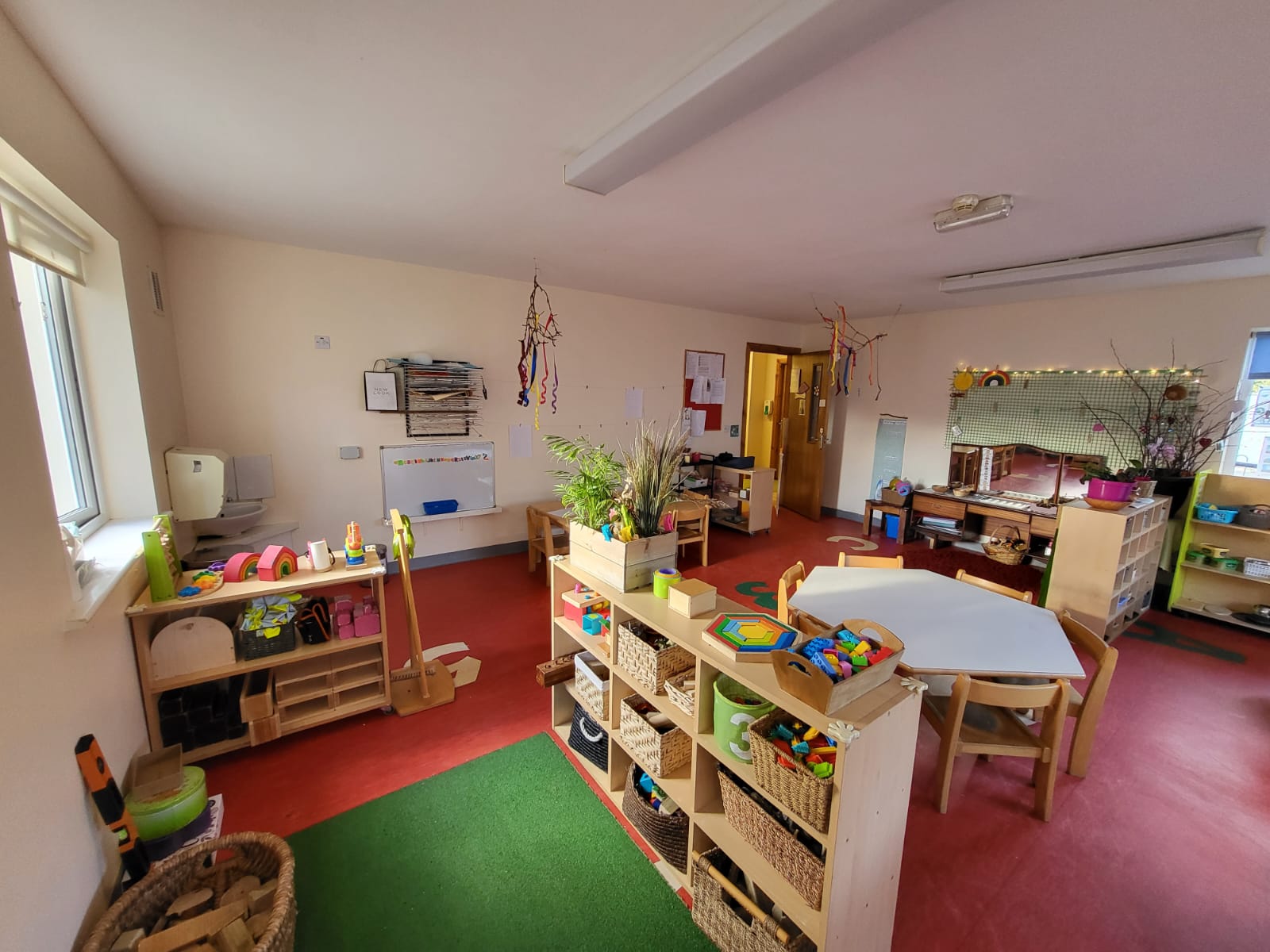
Little Cherubs
Montessori Approach
What is Montessori Education?
It is about learning to balance responsibility with freedom of choice, and it offers children the opportunity to realise their potential in a non-competitive enviroment.
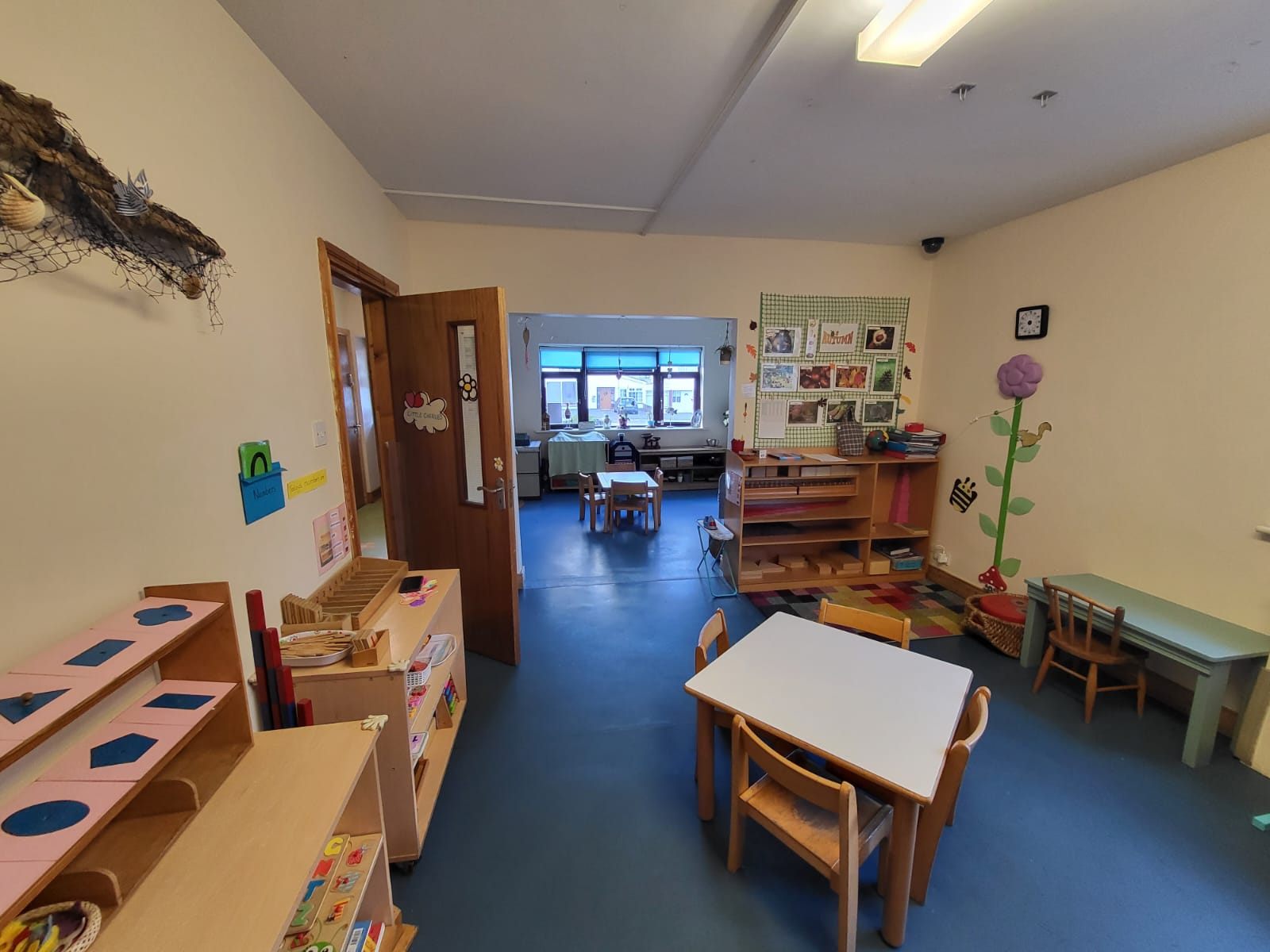 Stepping Stones
Stepping Stones
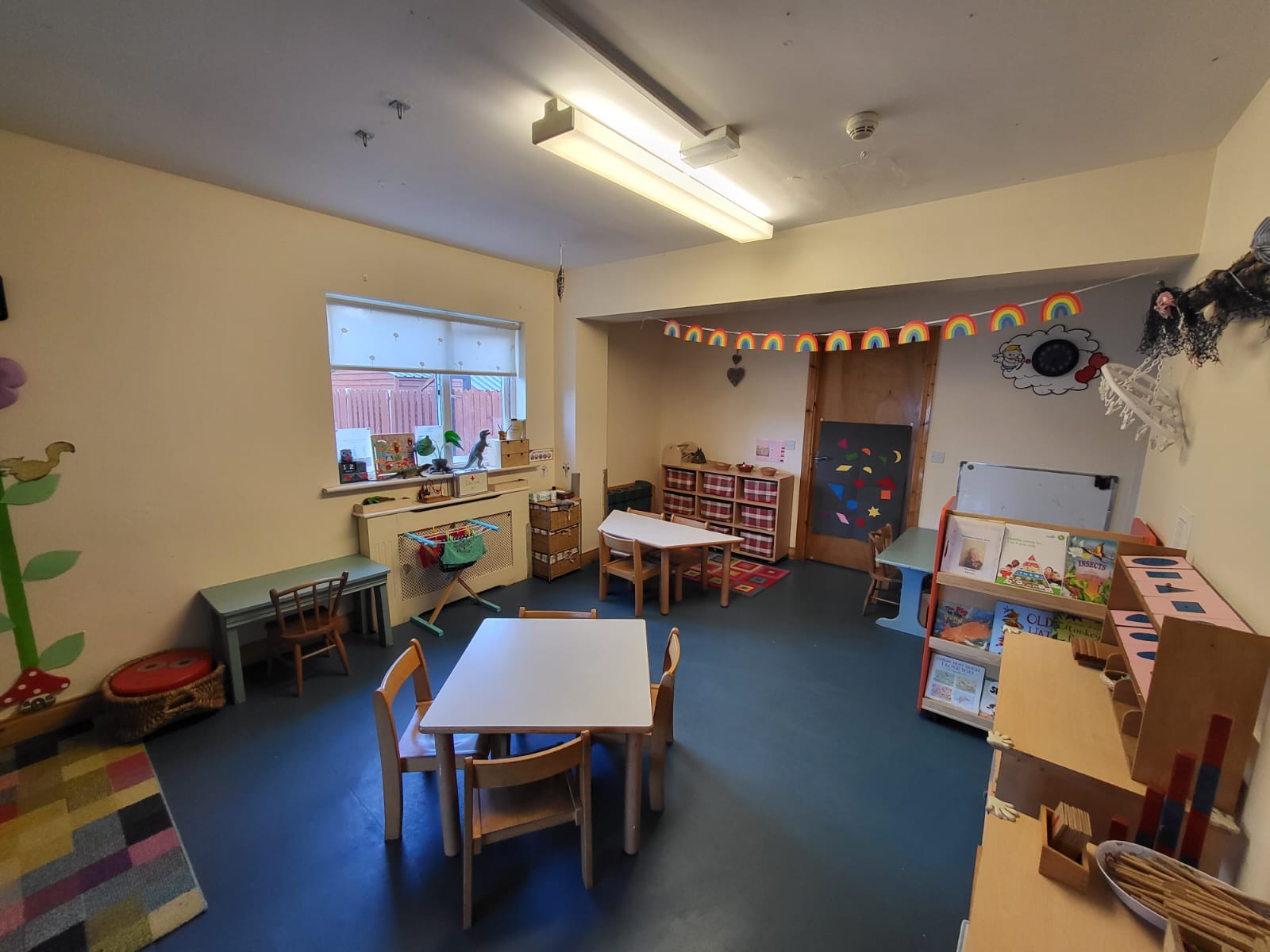
A typical day in the Montessori class is as follows:
- 9-9:15 Settling in time
- 9:15-10:15 Individual Montessori work
- 10:15-10:45 Snack time
- 10:45-11:15 Outdoor Play
- 11:15-11:45 Circle time
- 11:45-12pm General Activities
- 12pm Home time
